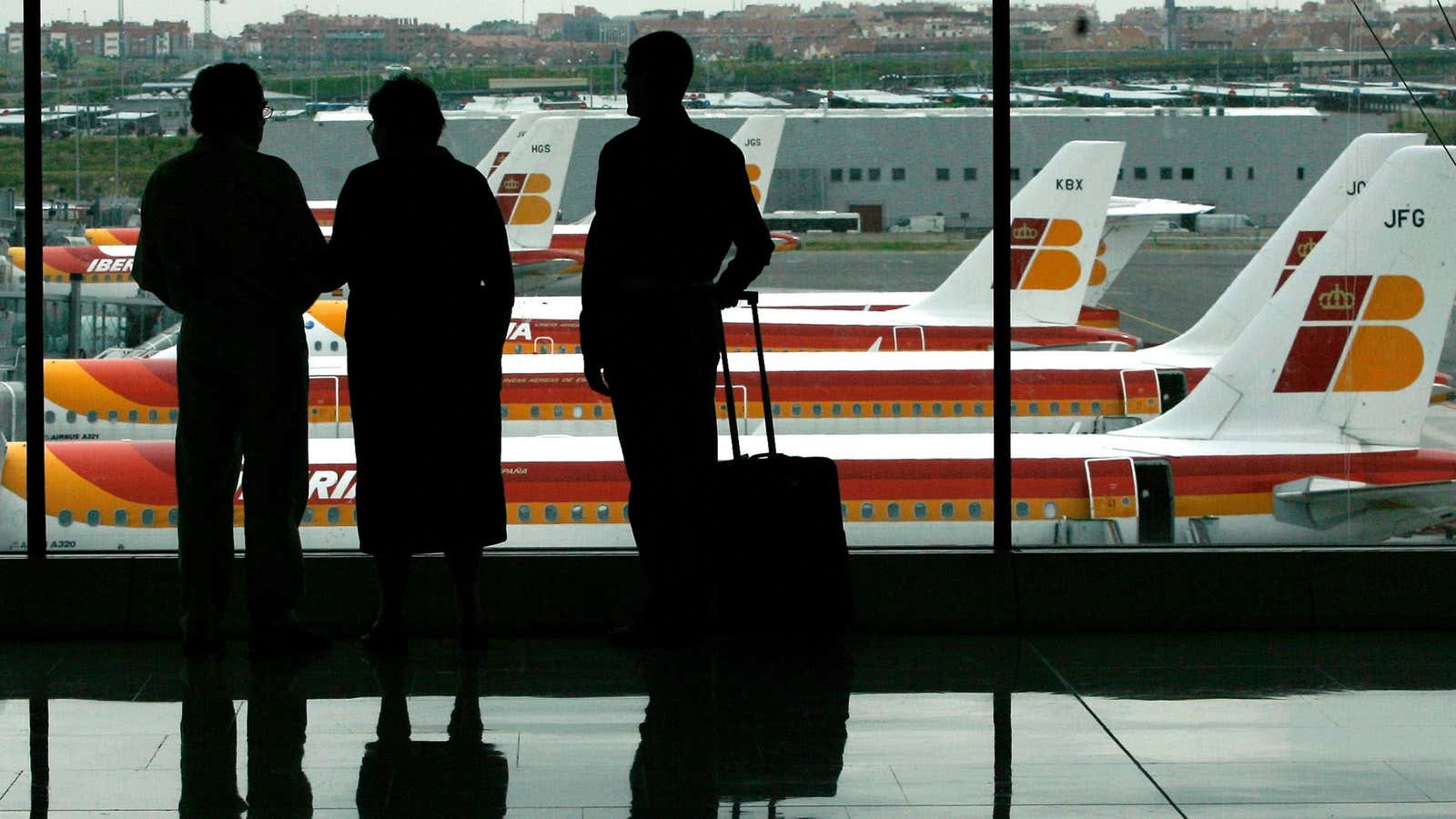Dear Eric Holthaus:
Your commitment, as a meteorologist, to vow to never take a flight again is admirable. It demonstrates an impressive level of your dedication to the cause. But, for the sake of the planet, please fly!
Let me explain. You say you flew 75,000 miles last year, emitting 33.5 metric tons of CO2—which is a lot for a household. But you said that “a lot of that is travel to Africa and the Caribbean, where I work on projects to reduce the impact of climate change.” How much of a benefit do you think you produce through those projects? If it’s not several hundred times the negative impact of 33.5 tons of CO2, then you’re doing something wrong. But if it is more than that amount, then the cost from you not flying—the detrimental effect that your partial absence has on those projects—is likely to be much greater than the benefits of saving those 33.5 tons.
If we look at the opportunity cost more generally, we can make this argument more solid and more precise. The impact of climate change is real and massive. But it’s a problem that’s caused by 7 billion people, and the effect you have as an individual by cutting out flights is small compared to other activities you can do. Economists (pdf), including the Intergovernmental Panel on Climate Change (IPCC), which you cite, typically put the “social cost” (roughly speaking, the “harm to the world”) of a ton of CO2 to be $12 or less. So the social harm from those 33.5 tons you emit each year is about $402. That’s a sizable harm, for sure, but not massive. And deciding not to fly has costs: it will cost you money, and it will cost you time. If ceasing to fly costs you more than $402 worth of time and money, which I’d expect it does, then you’re certainly making a mistake.
In fact, even if it costs you less than that, then you’re probably still making a mistake. Based on (as yet unpublished) research from my organization Giving What We Can, the best (though still uncertain) estimate of the cost to prevent the emission of one ton of CO2 is about $1 (by giving to Cool Earth, helping poor people who live in rain forests to be richer, so they don’t need to sell trees); and it’s possible that you can go as low as 14¢ (this is the past cost-effectiveness of the political lobbying charity Sandbag.) So if flying allows you to save $40, which you then give to Cool Earth, then you’ve done more good by flying than by not-flying, and it’s in the interests of the planet for you to fly.
You tweeted: “Be the change you want to see in the world.” But that’s terrible advice for someone who wants to fight climate change. Should the authors of the IPCC not use computers, because of the carbon footprint of electricity? Should they not have letters driven to them via FedEx, and instead receive mail via carrier pigeon? It’s impossible to fight climate change without emitting carbon, and what matters is your net impact, not whether it’s you that emits or someone else.
You might object: it’s not OK to murder, and then pay for someone else to resist murdering instead of you; and it’s not OK to commit adultery and pay for someone else to remain faithful (though that’s not to stop others from trying this tactic.) Similarly, you might say, it’s not OK to produce carbon and then pay for someone else not to produce CO2. But that misunderstands the nature of the harm that CO2 emissions cause. If you kill one person in order to prevent five others being killed, then you’ve made one person worse off in order to benefit five others. Many would say that that’s not a trade-off it’s acceptable to make. But the same consideration does not apply to emitting carbon. If you emit one ton of carbon in order to prevent 10 tons from being emitted, then you’ve simply reduced the total amount of CO2 emitted by nine tons. No one is made worse off by your actions. In fact, all of the people who are set to be harmed from climate change are made better off, by just a little bit.
So, Eric, to repeat: you taking flights is in the interests of the very people you’re trying to help, because you can use the increased productivity that flying gives you in order to mitigate far more than 33.5 tons of CO2. Deciding to stop flying is a good way of showing your dedication to the cause. But it’s not the best way to mitigate climate change. It’s not effective altruism.
